A circle of friends connected by goof-touching! The “FIST BUMP” corner of the radio program “GRAND MARQUEE” features people who live and enjoy Tokyo in a relay format.
On April 13, visual artist Mumuko was introduced by one of the best pole dancers in Japan, KUMI. She travels the world with only a suitcase to be free, and she “sees” things that we have lost sight of. MC Takano wishes he could be her apprentice!
INDEX
When you are a child, your senses are sensitive, but in today’s society, you have to become insensitive to survive.
Takano (MC): Mumuko, yesterday KUMI-san said that you are a “shaman of 2025”.
Mumuko: I see (laughs).
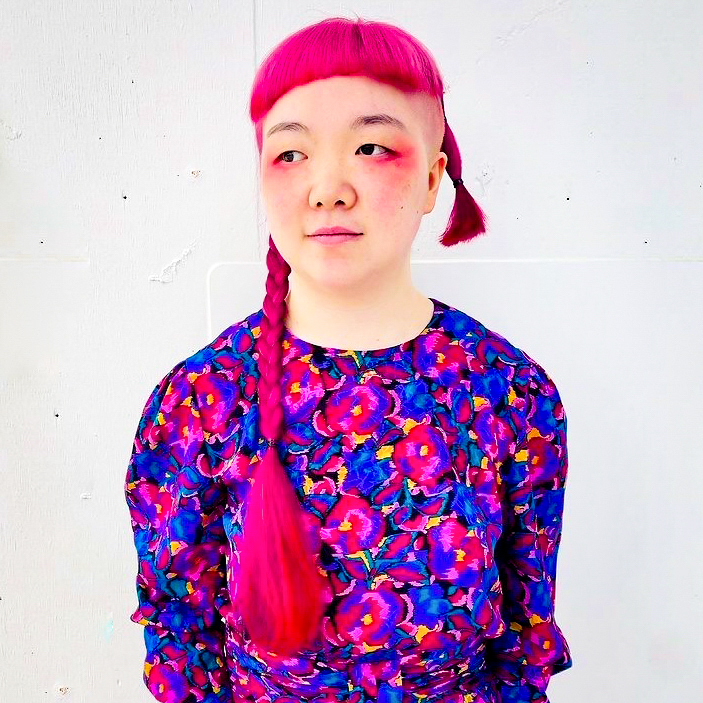
was born in China and came to Japan when she went to college. After that, she went to Argentina by herself. She is a visual artist who has traveled to more than 50 countries with only a suitcase and continues to search for possibilities in photography, video, installation, spatial experience, and expression. In addition to holding numerous solo exhibitions in Japan and abroad, she is also responsible for many advertisements, including the much-talked-about “Kaguya by Gucci” photographs that express the world of GUCCI in a modern take-tori-monogatari style.
https://www.instagram.com/mumuko_artist/
https://www. mumuko.com/
Takano: But it has a bit of a shamanistic feel to it.
Mumuko: Really, I lived with a shaman in the Amazon jungle for about six months.
Takano: I wonder if I’ll have enough time today (laughs)! I wonder if we have enough time today (laughs). Your profile alone is very dense, but first you were born in China and came to Japan when you went to college. After that, she moved to Argentina by himself. She is a visual artist who has traveled to more than 50 countries around the world with only one suitcase, and continues to search for possibilities in photography, video, installation, spatial experience, and expression. In addition to holding numerous solo exhibitions in Japan and abroad, she has been responsible for many advertisements, including the much-talked-about “Kaguya by Gucci” photographs, which express GUCCI’s world view in a modern take on Taketori Monogatari. Mumuko’s photographs are amazing, really amazing.
Mumuko: What do you like about them?
Takano: They are vivid, a mix of reality and unreality, and they convey the whole atmosphere.
Mumuko: I see. So you just use the camera to express the world as you see it. Maybe the world you see is a little different from the one you are in.
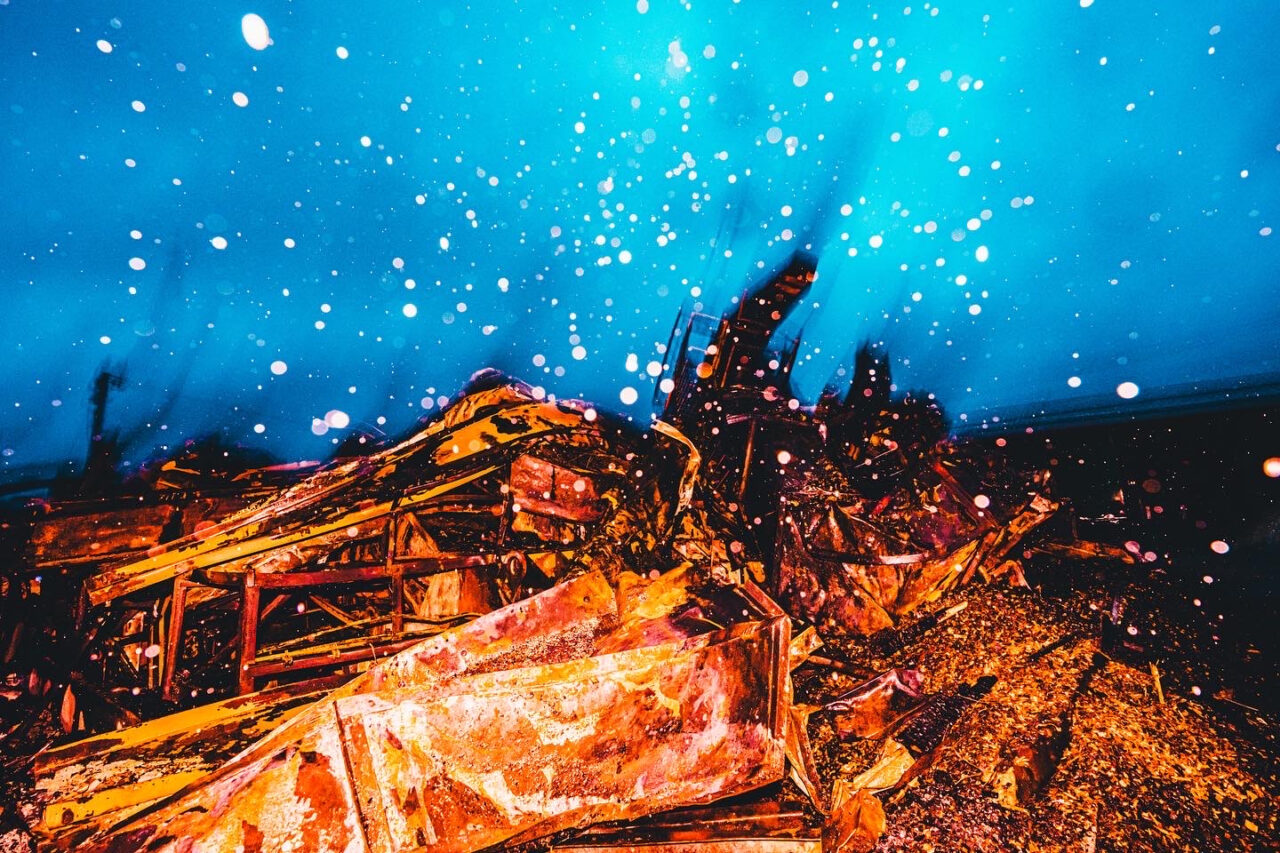
Takano: That is very interesting. It’s an atmosphere that doesn’t exist in reality, but it’s strangely realistic.
Mumuko: It exists, but I think there are people who can see it and people who can’t.
Takano: I want to be able to see!
Mumuko: A shaman told me that when children are born, they all have very sensitive senses and can see everything. There is originally a lot of information in the world, but in today’s society, you have to become insensitive to live in the opposite way. As we grow up, we become more and more insensitive.
Takano: You mean you may be unconsciously saving your mind?
Mumuko: That’s right. Especially in Tokyo, if you don’t become really insensitive, you might die.
Takano: That’s true. How did you end up living with shamans in the Amazon?
Mumuko: While traveling in South America, I wanted to experiment with living without depending on money. I found a website where you could live in someone’s house and do something for them, and they would provide you with a place to sleep and food, as if you were bartering.
Takano: What is life with a shaman like every day?
Mumuko: They are natives where money really doesn’t exist, where there is no capitalism at all, and you have to hunt to have food. Each village has dozens of people, maybe a hundred at the most, and they build their houses in a safe place a short distance away from the jungle. Hunting requires going into the jungle, so we would go in with a group of about six or seven men, fight snakes and crocodiles, and bring them back.
Takano: Wow. ……
Mumuko: The crocodile was right in front of us, and we stared at each other for two days.
Takano: Staring at the crocodile: ……
Mumuko: The crocodile also has a moment when it relaxes, and that’s when you catch it.
Takano: That’s amazing!
Mumuko: It’s the same with photography. Photography is also waiting for a moment. You take a picture of the moment when the other person no longer cares about anything. It’s the same thing.
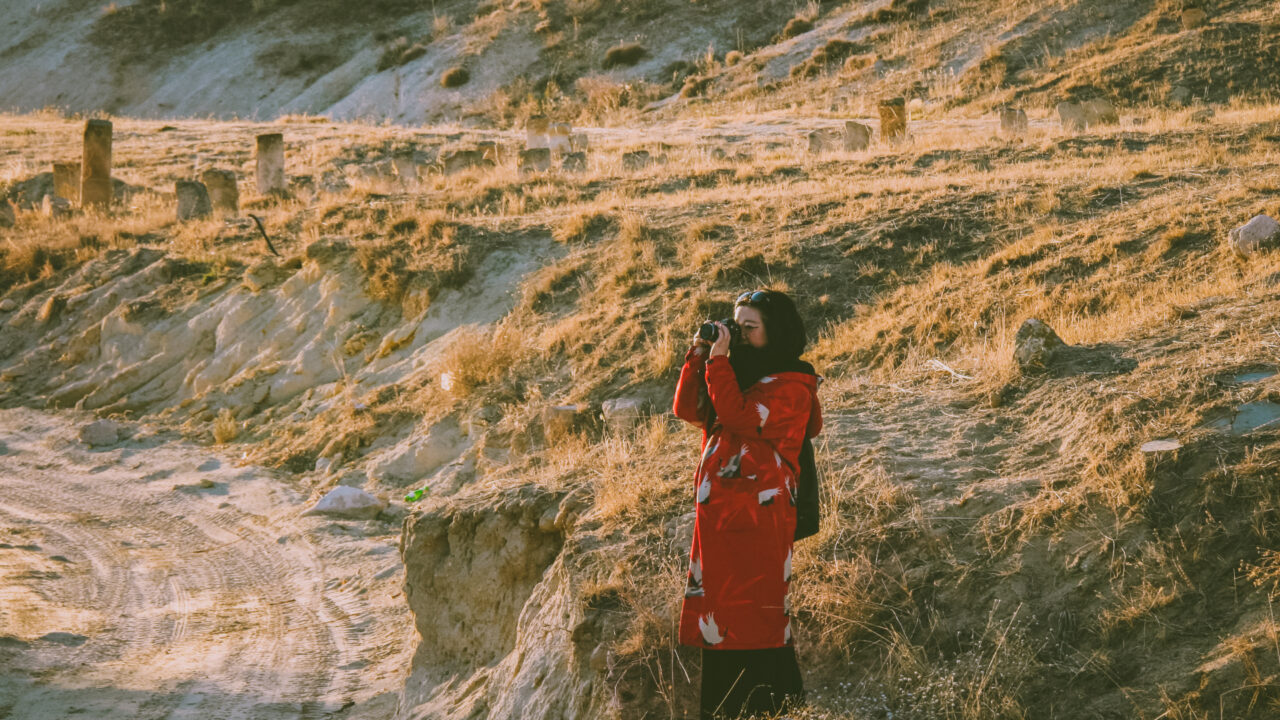
Takano: Do you cultivate your sense of the wild by going to various places like that?
Mumuko: No, because everything I do is connected. Every experience is a good experience.
Takano: I want to be an apprentice! I’m learning so much.
Facing the war in Ukraine, the unexpected thing I needed to keep my spirits up.
Takano: To begin with, your name Mumuko is written as “child without a dream. Why is this?
Mumuko: I am from China, and my original name was MUMU, but when I became a naturalized Japanese citizen, I looked for the kanji for MU, and I thought, “Nothing is Everything,” which is a very broad meaning.
Takano: Nothing is everything.
Mumuko: That’s right. Another goal of mine was “to be a child,” so I chose ” Mumuko.
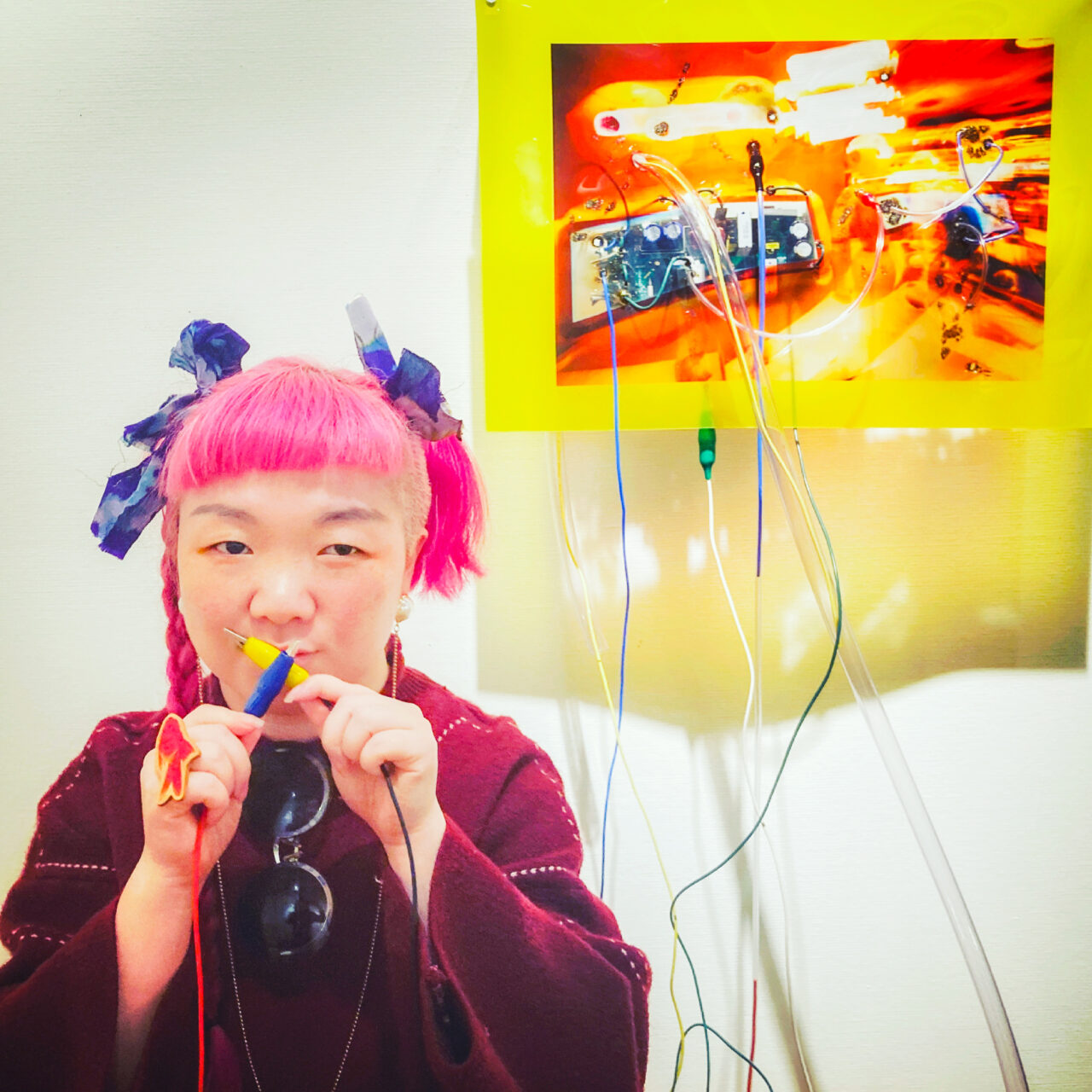
Takano: When you hear the word “dreamless,” it sounds like reality? Takano: When I hear that you have no dreams, I get the impression that it is a reality, but when I hear your story, it seems that you do have dreams.
Mumuko: In my mind, I am not dreaming, but rather, “Live properly, everyone.
Takano: The real world, you know. No, it’s interesting. I heard that you live your life with one suitcase.
Mumuko: I recently went to Ukraine. There is an app over there that notifies you when bombs are flying over there, and when I got the notification, I had to run to a shelter or the subway. When you do that over and over again, you instinctively panic, and I found that the only thing I had taken with me to the shelter was a “beauty mask”.
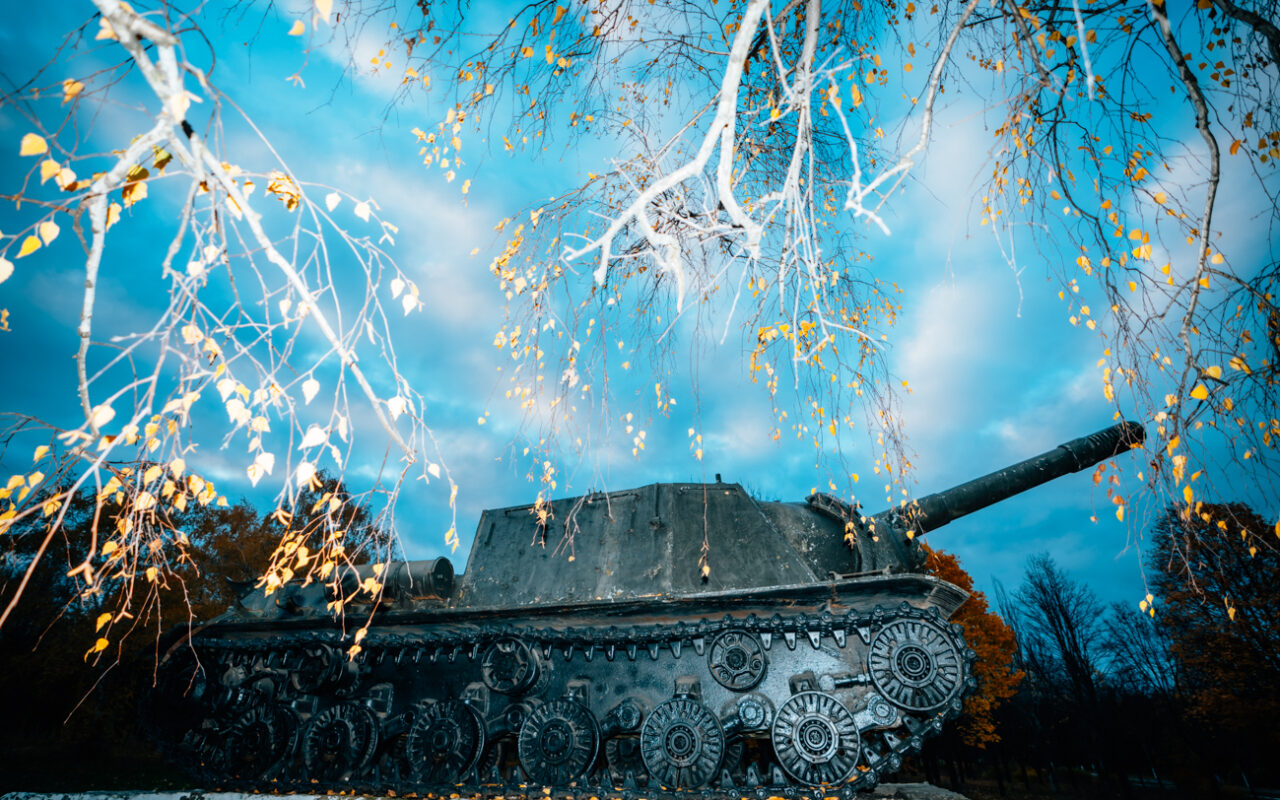
Takano: A facial equipment seems like the first thing you would leave behind.
Mumuko: Facing the war, I felt that I was not a photographer, but just a woman. Every day, there are waves of cruelty falling on me. All the information was too new. It is very important to maintain myself in such a situation, and I make skin care the most important part of my routine.
Takano: I see.
Mumuko: No matter how many bombs come down, after I take care of my skin, I can remember who I am in Tokyo for a moment.
Takano: It’s important to keep your mind in order, isn’t it? Now, I would like to send you a song of Mumuko’s. What kind of song did she choose?
Mumuko: When I went to Ukraine, I really couldn’t listen to music anymore, but there was a song called “Make it Home” that pianist Fujiko Hemming sang for an anime called “MONSTER,” and it was the only song I could listen to. I could only listen to that song.
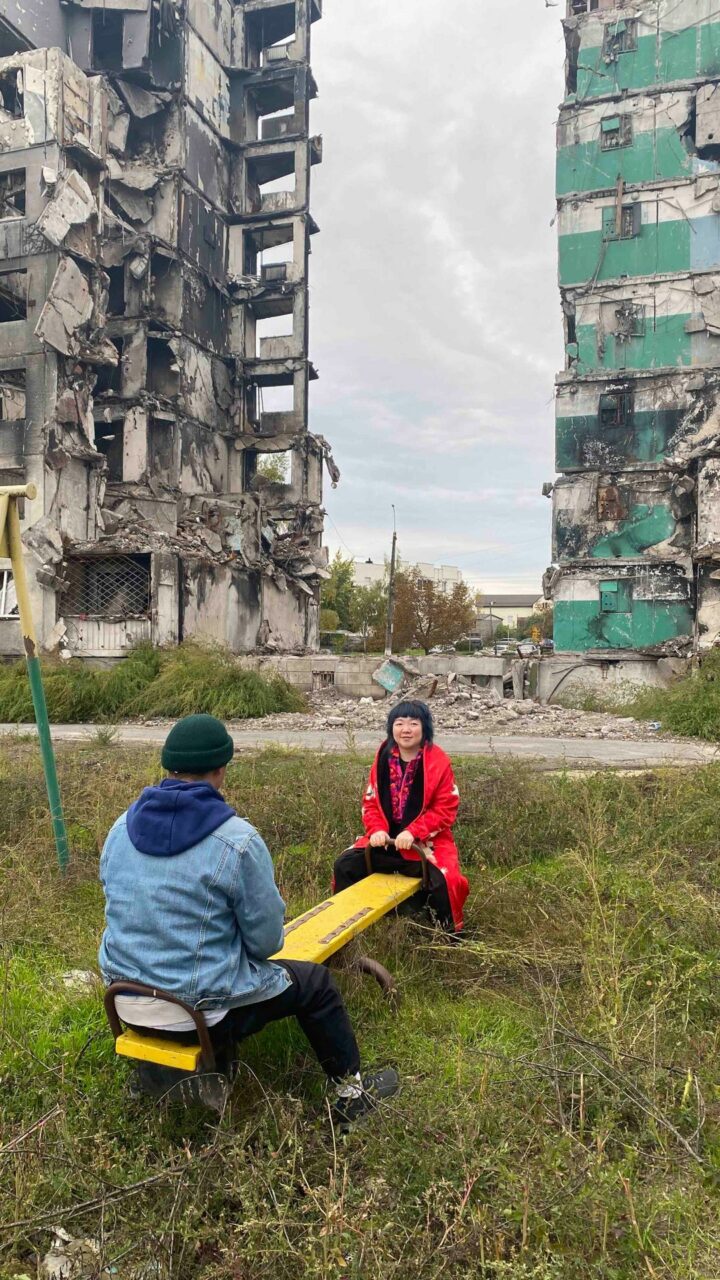
People who live in Tokyo have the closest physical distance from each other in the world, and the furthest distance from each other’s hearts in the world.
Takano: It’s good for this time of the evening. It frees my mind.
Mumuko: Yes, I always feel so relieved when I listen to this song.
Takano: Mumuko, you have traveled all over the world.
Mumuko: The other day, I was walking towards Shibuya. I walked through Takeshita Street, Harajuku Station, and Yoyogi Park. Then I noticed that Meiji Shrine and Harajuku Station are connected by only one wall. I thought that was interesting. There is probably no other place in the world where a super-spiritual place where God lives and the capitalist city are right next to each other. I think this coexistence and tolerance is the charm of Tokyo.
Takano: Indeed. I often go to Harajuku too, but I didn’t realize it until you mentioned it.
Mumuko: The diversity of Tokyo, or rather, the people who live here are all a bit eccentric, so it’s an interesting combination.
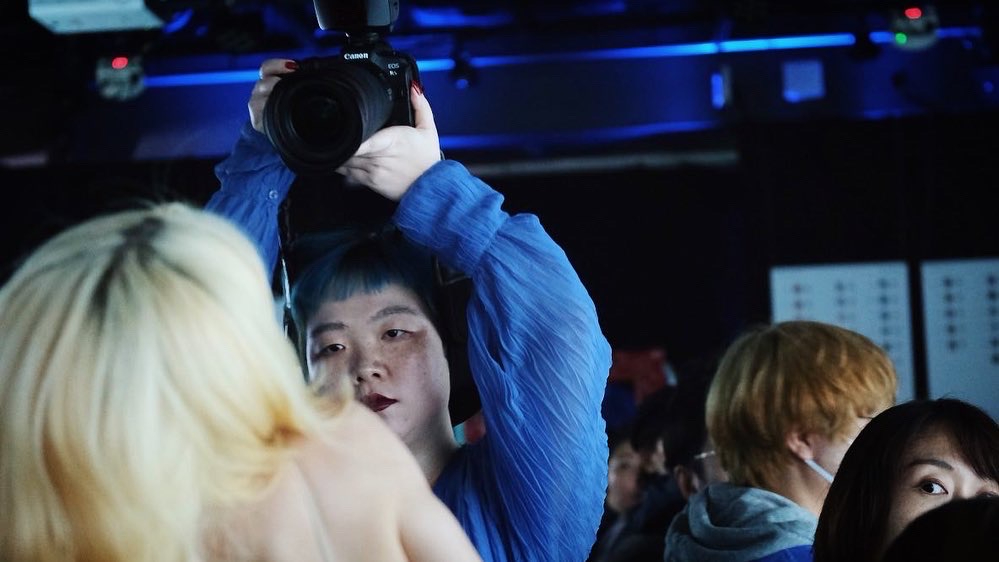
Takano: What do you think of the people who live in Tokyo?
Mumuko: People who live in Tokyo have the closest physical distance in the world and the farthest distance between their hearts in the world. There is no other place in the world where people live so densely, so in order to balance the lack of space, I guess we have to change the distance between our hearts.
Takano: I guess it is the opposite of the Amazon.
Mumuko: Yes, in the Amazon, nature is vast and there is a lot of space, so people all want to get closer to each other. If we don’t group together, we can’t fight nature. Because we will die.
Takano: And the distance between our hearts. They want to be close.
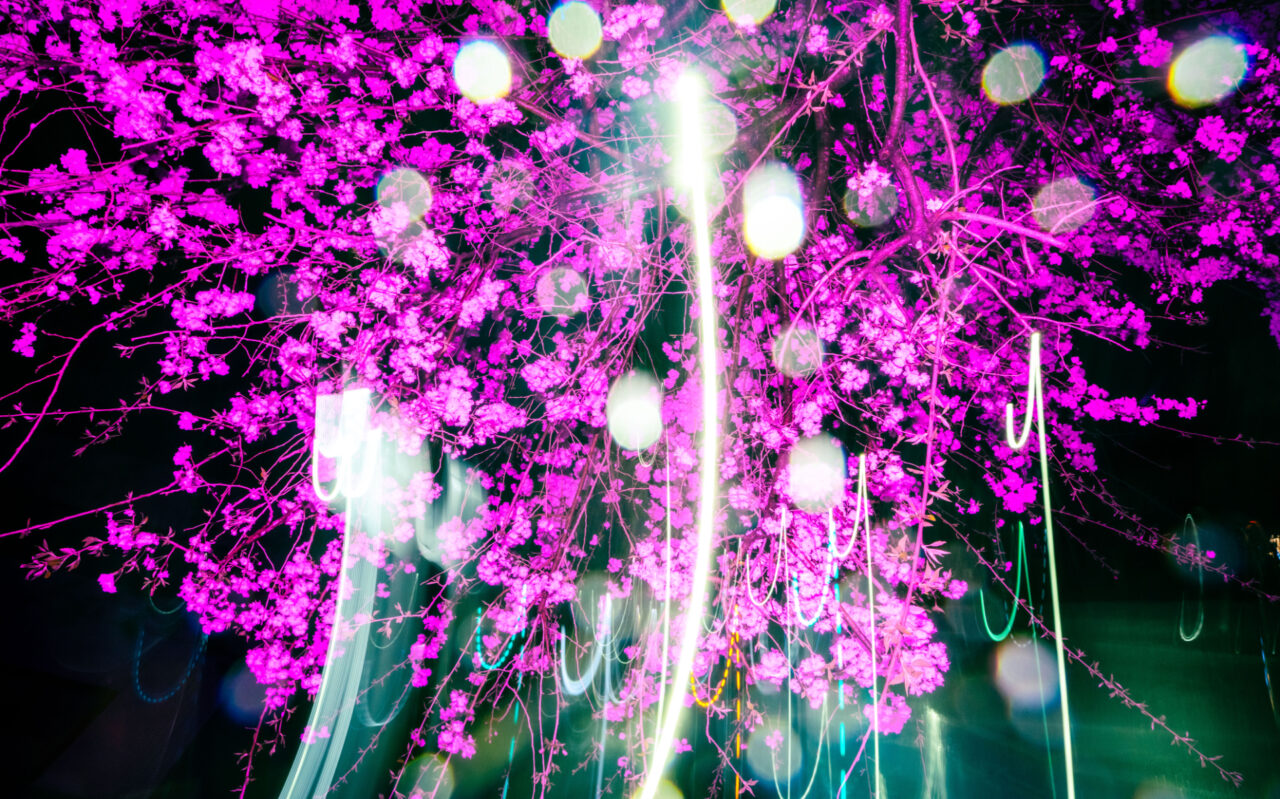
Mumuko:So Tokyo is the complete opposite, but I think that’s fine, and I think it’s interesting that the culture was born in a place like this.
Takano: Once again, I was made aware of the uniqueness of Tokyo’s culture. And you know what, we didn’t have enough time (laughs). I really wanted to hear much more. Thank you very much.
Mumuko: Thank you very much.
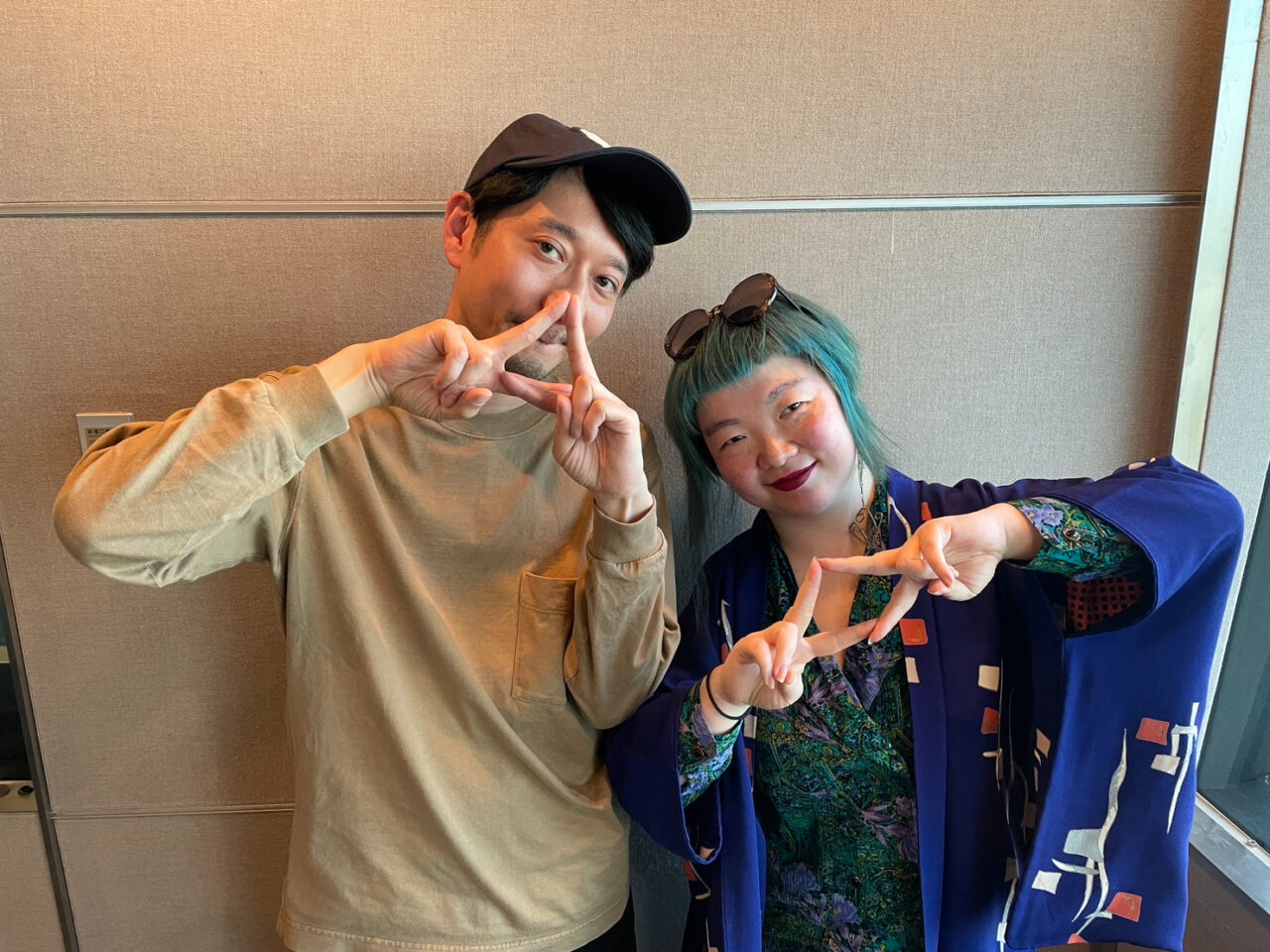
GRAND MARQUEE
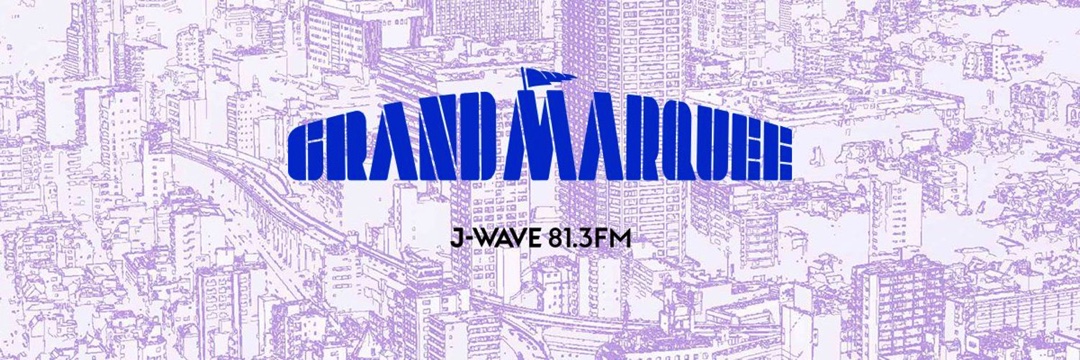
J-WAVE (81.3FM) Mon-Thu 16:00 – 18:50
Navigator: Shinya Takano, Celeina Ann






















